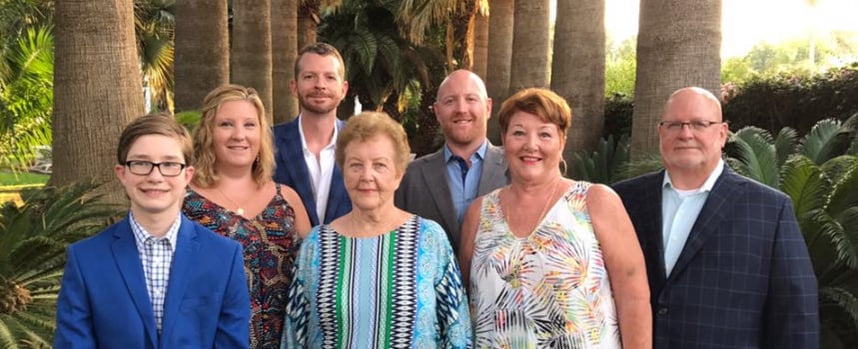The old adage reads, “Money can’t buy happiness.” But doesn’t money give us the freedom to do the things that make us happy? We spend our lives trying to earn as much money as possible, but at some point, don’t we need to evaluate what really brings happiness into our lives?
More money does not mean more happiness, but the way you spend the money you have can mean just that. Every person and family has a unique set of values. By reflecting on the things that matter to you, you can determine where to spend your money to maximize the happiness it buys. Here are a few of my thoughts as I did some self-reflection for me and my family.
The Short-Term Gratification of “Stuff”
We live in a world where everyone is focused on having THE BEST of everything—the trendiest clothes, the latest technology, the nicest car. While buying those things gives us instant gratification, after a while we are back to trying to find the next “it” thing to buy. Harvard University professor of psychology, Dan Gilbert, says the key to happiness is spending your money on experiences rather than material things. Research shows that the excitement and joy of buying “stuff” wears off quickly, and you are left with more clutter. However, investing in an experience creates happiness that lasts much, much longer.
So, does it make sense to spend that $300 on a new pair of Tory Burch shoes, or should you take the family on a day trip to Six Flags? While it’s fun to go out in your new, shiny shoes and have your friends ooh and ah, the gratification fades relatively quickly; whereas the family trip will bring stories and memories, which can provide gratification for years to come. For me and my family, it’s the time spent with one another and feeling connected to those people and the memories created that make an expense worth it.
How Much Is a Memory Worth?
It’s Saturday afternoon on a sunny, summer day, and my child is begging to spend the day at the pool. Are my husband and I able to take the time, or do we have to tell him no because we have a whole list of chores to get done: cut the grass, do the laundry, clean the house, etc.? Choosing the option that would make me—and my family—happier seems simple. However, those chores still must get done.
Studies have found that spending money to free up time, such as a grass cutting or house cleaning service, creates greater overall happiness. Back to the idea of buying experiences, freeing up your time by “outsourcing” day-to-day tasks allows you to invest in your relationships and create memories together.
Getting to come home from a tough day at work to go to your favorite yoga class or to sit and play Monopoly with the kids rather than cutting grass in 95° heat, I think is priceless. In a world where we are constantly trying to save, save, save, where does it make sense to spend? Believe it or not, splurging on a service or item (think Roomba) to free up time often brings greater joy to people’s lives. It frees up precious time to spend with friends and family.
“‘Tis Better to Give …”
Do you ever look around church when the collection basket goes around? I love seeing the kids’ excitement and happiness as they take turns dropping their dollar bills in the basket. I think we often forget the pure joy we get from knowing we are helping others. It is definitely fun to splurge on yourself—don’t get me wrong—but greater joy often comes from “spending” on others. A Harvard University study published in 2017 found spending money on others boosts people’s emotional and physical well-being. It just makes you feel better all around.
There’s a saying, “‘Tis better to give than to receive.” Warren Buffett is a proponent of this sentiment, challenging the wealthy to pledge at least 50% of their wealth to charitable causes. However, you don’t have to be wealthy to find joy in giving. It is as simple as putting your dollar in the collection at church, paying it forward in line at Starbucks, or donating to charity. Spending on others typically brings just as much gratification to the spender as it does the receiver of the gift.
So the question is, how do we make the most of our money? I don’t know about you, but for me and my family, the answer seems to be investing in experiences, time, and others. Make those memories, share those laughs, make someone else smile. And remember: how you choose to spend can bring great joy and happiness to your life—and the lives of others.
—
This post was written by a member of the Plancorp Women’s Initiative, which strives to advocate for clients and women in the community by addressing topics specific to their financial lives. For more information about the Women’s Initiative and how you can get involved, email haleigh@plancorp.com or visit the Plancorp Women’s Initiative page.









